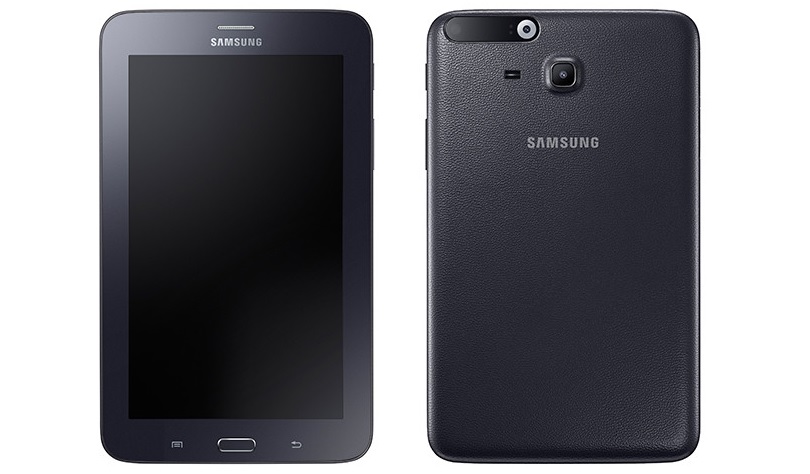Affiliate links on Android Authority may earn us a commission. Learn more.
Samsung brings an iris scanning tablet to India
May 25, 2016

Samsung has been talking about iris scanners for a while now, and it seems they are kicking off that effort in a big way with the new Samsung Galaxy Tab Iris. This latest tablet is part of the Make in India effort and is aimed at government and corporate employees.
First, let’s start with a specs run down. The Tab Iris is powered by an unspecified 1.2GHz quad-core SoC with 1.5GB RAM, has a 7-inch display with a resolution of 1024×600, is 3G enabled, has a 5MP rear cam, and comes with 8GB storage with microSD for expansion. Software wise, this thing is just running Android 5.0 Lollipop, which seems a bit strange considering Marshmallow has been out for a long while now.
The specs here are certainly nothing too exciting, save for the dual-eye scanner that gives the Tab Iris its name. While the tablet isn’t aimed at everyday consumers, it’s actually quite affordable at Rs. 13,499, or what comes to about $200.
As for how Samsung and the Indian government plan to use the tech? The Samsung Galaxy Tab Iris is certified for use by UIDAI (Unique Identification Authority of India), which is a government agency that collects biometric and demographic data on residents into a central database and assigns these citizens a unique 12-digit number called an Aadhaar. That means the Tab Iris will allow government employees to quickly confirm the identity of individuals for secure banking, passport services, healthcare, education, and more.
While the idea of collecting biometrics and using them to quickly enroll people in various government and public services sounds a touch bit dystopic to me, India is pushing hard towards the move towards a cashless and paperless society. And Samsung’s new tablet will help with that effort.
Putting aside how the Indian government intends to use the tech, what do you think of the idea of iris scanners as a biometric security system in phones and tablets? Prefer fingerprint scanners? Share your thoughts below.